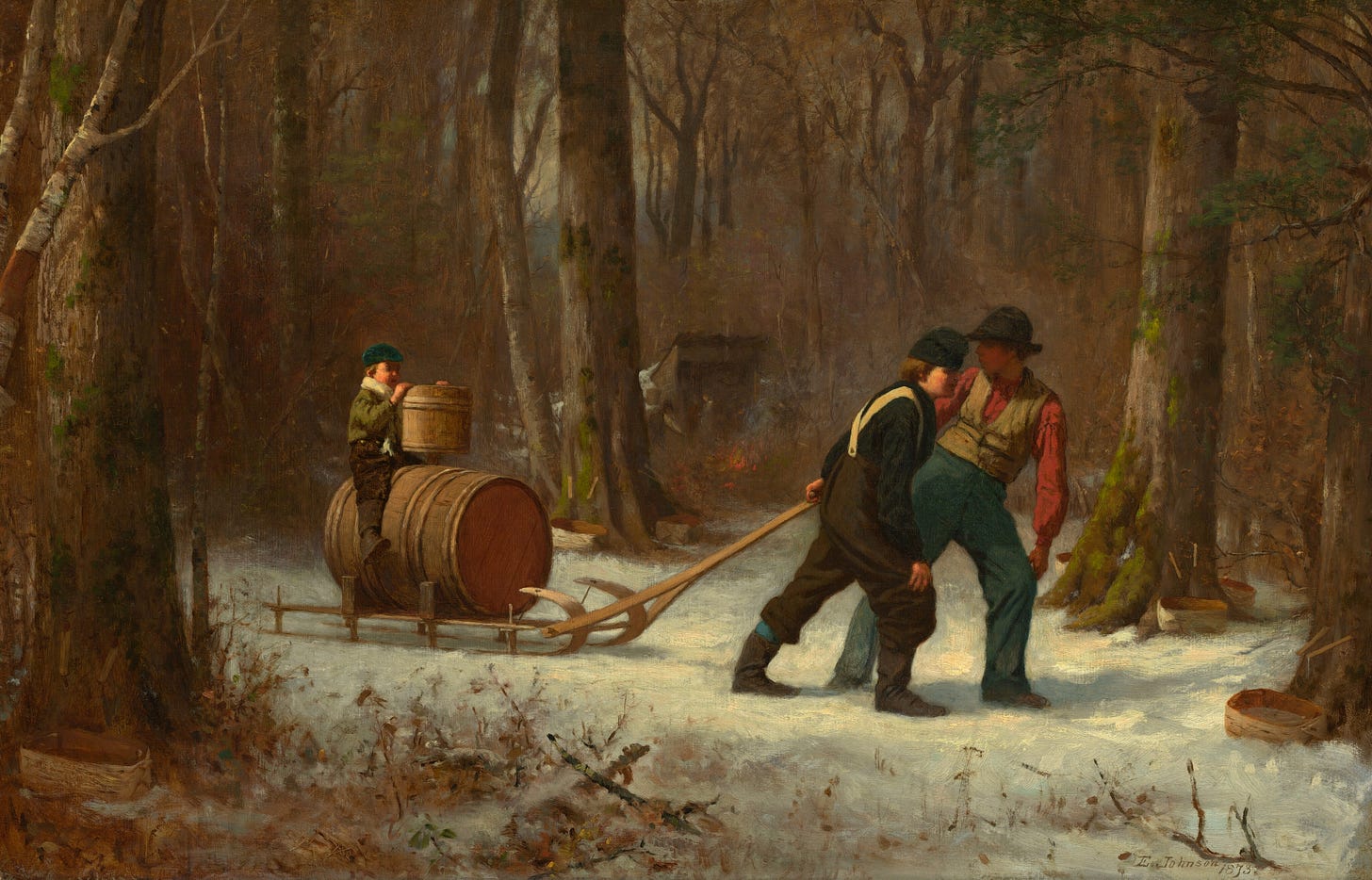The first weed I ever pulled came with a wave of guilt that surprised me.
It was spring, twenty years ago, and I had just established my first garden—two narrow in-ground beds behind a rented craftsman bungalow, the soil revived with bags of garden soil and waiting for the plant starts from the local nursery. When the wee green interlopers appeared, I hesitated, trowel in hand. They were alive, these plants, growing toward the sun with the same determination as my carefully selected vegetables.
Who was I to decide they didn't belong?
This moment marked the beginning of a philosophical journey that has shaped my relationship with the land for two decades. The question that sprouted alongside those weeds was deceptively simple but impossibly profound: Where is my place, as a human, in the natural world?
The Inheritance of Separation
I inherited a worldview that positioned humans as separate from—and often above—the natural world. This perspective wasn't explicitly taught so much as absorbed through countless subtle messages: nature is something to visit on weekends, something to be managed, controlled, or at best, protected from ourselves. The underlying assumption was always our fundamental separateness.
This separation created a strange paradox. On one hand, I found myself paralyzed by guilt over the smallest interactions with other living beings—pulling weeds, eating meat, wearing silk, tapping maple trees for sap. Each action felt like an intrusion, an exploitation of beings that had their own right to exist un-touched by human hands. On the other hand, this very guilt reinforced the separation I was questioning. Only someone who sees themselves as outside of nature would feel like an intruder within it.
The Anxiety of Impact
The list of ethical quandaries grew longer as I deepened my engagement with the land:
Was it wrong to remove the invasive honeysuckle choking out the native understory plants in the woodland edge of my property? They hadn't asked to be brought here, after all.
Should I feel guilty about tapping maple trees for syrup, extracting their sap when they're just waking from winter dormancy to fuel their spring growth?
Was cutting any tree justified, even when they were planted too closely by previous owners and now struggled for light and nutrients?
Each question carried the weight of an assumed transgression—that my very presence and participation in these natural systems was somehow fundamentally wrong. I began to recognize this as its own kind of colonial mindset: seeing humans as alien to the earth rather than emerging from it.
On Their Way to Camp (maple sugaring in late winter), 1873 by Eastman Johnson
Learning from Other Ways of Knowing
Salvation from this paralysis has come gradually, through encounters with different frameworks for understanding human-nature relationships. Indigenous philosophies that position humans as relatives to, rather than rulers of, other beings. Ecological studies demonstrating how all living things impact one another—trees competing for sunlight, herbivores shaping plant communities, predators regulating prey populations.
I’ve begun to understand that participation isn’t the problem. Every living being participates in life-and-death cycles. What matters is how I participate.
The Question of Exploitation
Still, a nagging doubt reveals itself from time to time.
How can I be sure my actions aren’t exploitative? It seems easy enough to justify almost anything as "natural participation" if I want to. The timber company clear-cutting a forest and the careful woodlot manager both harvest trees, after all.
I’ve found myself developing questions that help navigate this uncertainty:
Does this action maintain or enhance the overall health of this ecosystem?
Is there reciprocity in this relationship—am I giving as well as taking?
Have I observed and understood before acting?
Am I considering more than my immediate benefit?
These questions don’t provide absolute certainty, but they create a framework for thoughtful engagement rather than avoidance or exploitation.
Practicing Relationship
Twenty years after that first hesitant weed-pulling, my approach has transformed. When I pull weeds now, I do so with awareness of their role and mine. Some I leave to support pollinators or improve soil. Others I remove to create space for different plants that serve other functions in the garden ecosystem. The weeds I pull become compost, returning their nutrients to the soil.
I've come to see my actions not as intrusions but as participation in relationship. When I tap maple trees, I take only a small percentage of their sap, ensure the holes are properly sized to heal, and express gratitude for what they provide.
This doesn't mean I never question myself. The uncertainty remains, but now I recognize it as valuable—a check against complacency, a reminder to remain attentive and engaged.
The Wisdom of Uncertainty
Perhaps the most important lesson of these twenty years has been learning to live within the questions rather than demanding absolute answers. The very fact that I question whether my actions are exploitative creates space for more careful, considered engagement.
Those who exploit without concern rarely worry about whether they're exploiting. My uncertainty itself has become a form of relationship with the living world—one based in humility rather than mastery.
I no longer feel like an alien presence on this planet but rather a participant in its complex web of relationships. Not a perfect participant, certainly, but one who is learning, with every season, how to listen more carefully, observe more attentively, and engage more thoughtfully with the living systems that sustain us all.
The guilt hasn't disappeared entirely. Perhaps it never should. But it has transformed from a paralyzing force into a guiding one—less about shame for existing and more about responsibility for how I exist in relationship to everything else.
This, I believe, is the space between exploitation and isolation—a middle path of conscious participation. It's where I'm learning to live.





